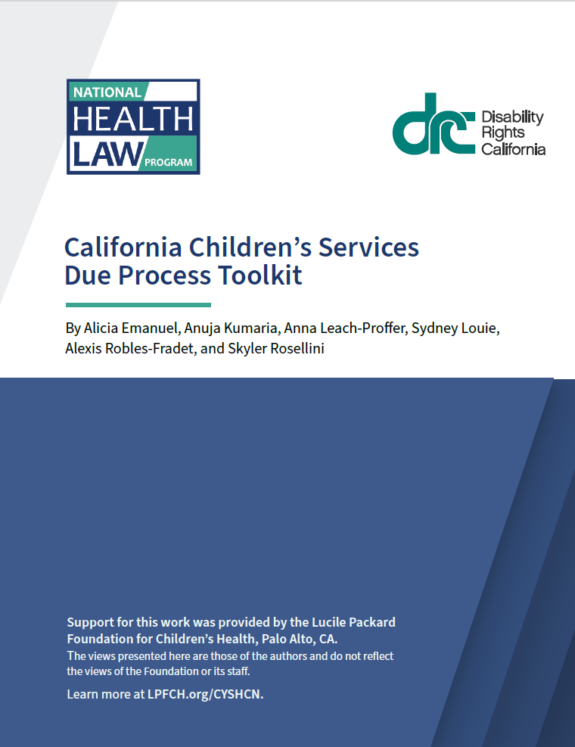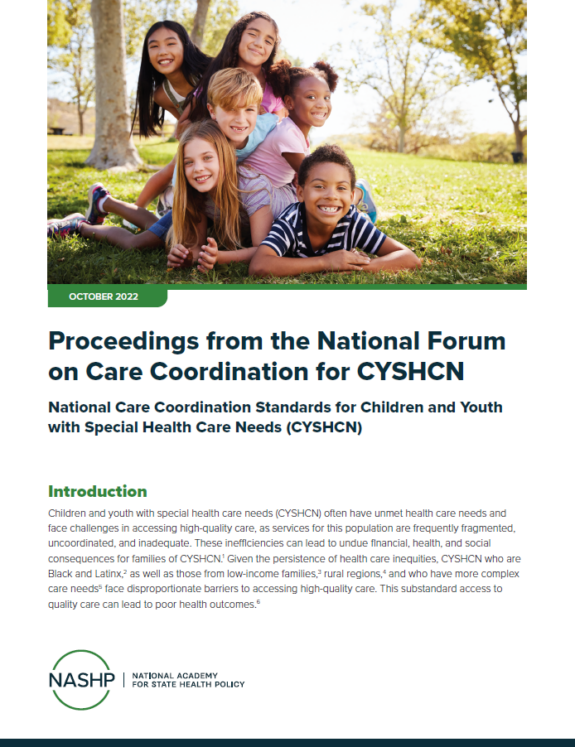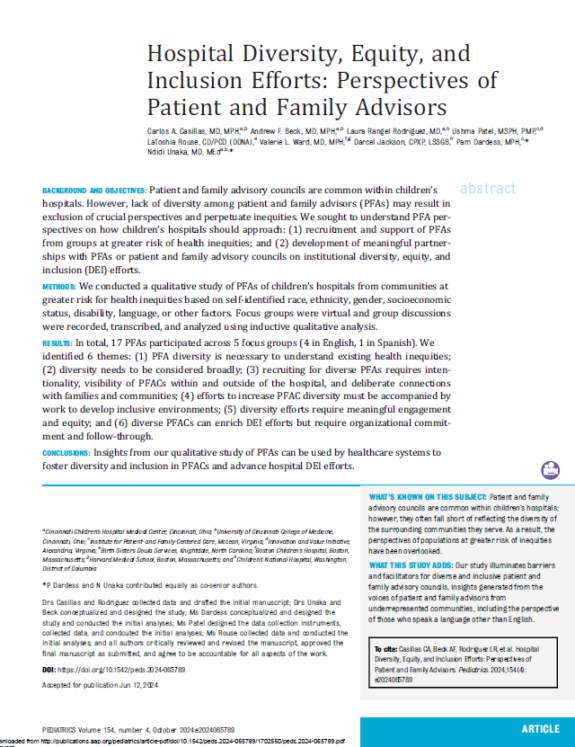COVID-19 Public Health Emergency (PHE) Unwinding
See resources and our responseProgram for Children and Youth with Special Health Care Needs (CYSHCN)
One in five children in the United States has a special health care need—a physical, developmental, behavioral, or emotional condition requiring more than routine health services. For more than 13 years, we’ve focused our grantmaking and advocacy on transforming the health care system to work better for these kids and their families.
Learn More
Resource Library
Browse our library of reports, journal articles, fact sheets, issue briefs, webinar recaps, and other publications.
Grantmaking
We invest in programs and projects that contribute to improving systems of care for children and youth with special health care needs and their families.
Grants Awarded
Interested in projects we have funded? Browse our database of active and completed grants.

Transforming Systems of Care
Families of CYSHCN struggle to access and make sense of a health care system that wasn’t designed with their needs in mind. Through our grantmaking, thought leadership, and advocacy, we develop and shape projects and policies that move us closer to a more equitable, efficient system—one that delivers high-quality, coordinated, family-centered care.
We do this work because of the experiences of real families. Find out what it takes to navigate the health care system for a child with special health care needs.
Our Focus Areas
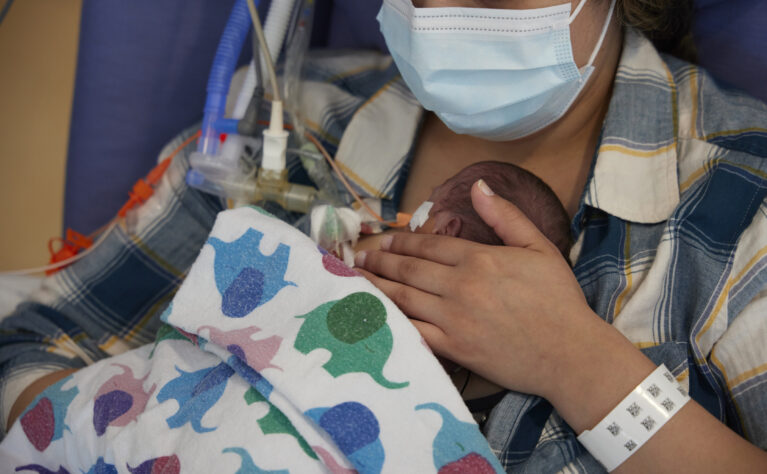
Why It's Important
Juggling appointments, accessing home medical equipment, deciphering insurance coverage, keeping schools and care providers updated—these time-intensive tasks are crucial to coordinating care for CYSHCN and usually fall on parents’ shoulders, adding financial and mental strain. In fact, 20% of parents of CYSHCN must reduce their work hours or leave their jobs to manage care for their child. Care-coordination services can make families’ lives a little easier, improve health outcomes, and reduce costs. Yet nearly half of families who need these services don’t receive them.
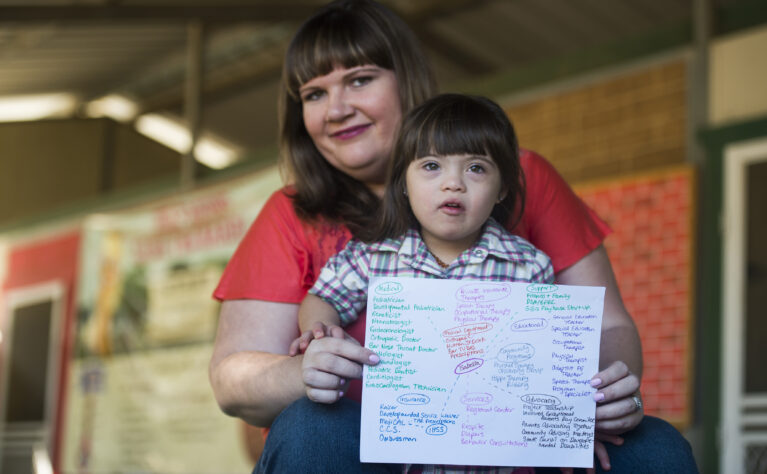
Our Approach
All families of CYSHCN deserve effective care coordination that quickly connects them to high-quality care, facilitates communication, and supports them as primary caregivers. That’s why we’ve played a pivotal role in developing national care coordination standards and improving communication between county-level agencies. Now, we continue that work by
- identifying and overcoming adoption barriers at the state level,
- investing in best practices research, and
- helping states determine how to finance care-coordination services.
Care Coordination Resources
See allResearch & Reports |
Event and Webinar Recaps |
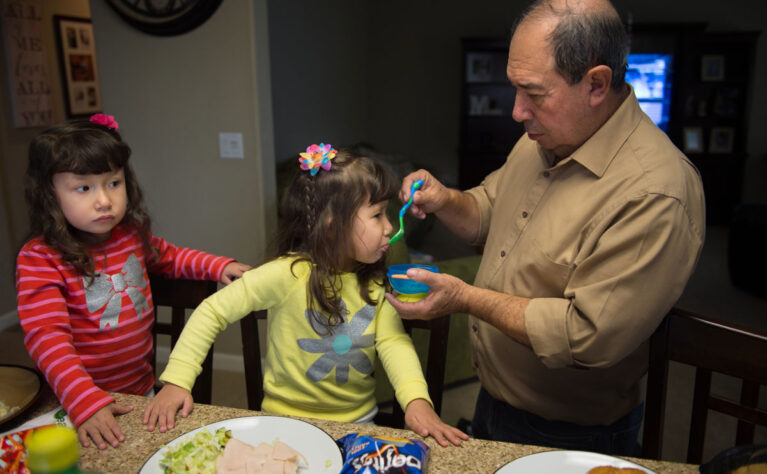
Why It’s Important
Families of CYSHCN are experts in the care of their children. They also have direct experience navigating our complex and fragmented health care system. Keeping families’ voices and perspectives at the center of policy and program development will help improve care quality and efficiency, remove barriers, and ultimately make it possible for kids to receive the specialized care they need.
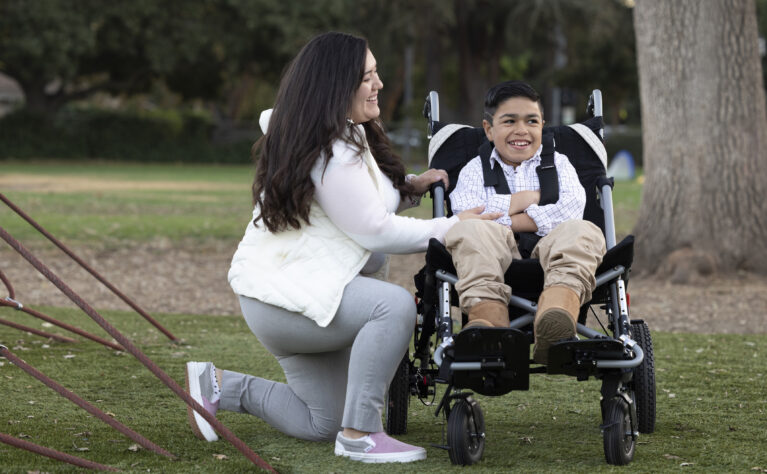
Our Approach
Effective, meaningful family engagement requires ongoing, intentional commitment and flexibility from health care systems. To aid in that work, we’ve invested and partnered in developing tools and resources to guide these initiatives. We also require our grantees to engage family members in all grant-funded activities and to compensate families for their time and expertise.
Our continuing priorities include
- assessing and improving family engagement within local organizations and state and federal agencies,
- increasing the number of trained family advocates, and
- promoting peer-to-peer family support practices.
Family Engagement Resources
See allJournal Articles |
Journal Articles |
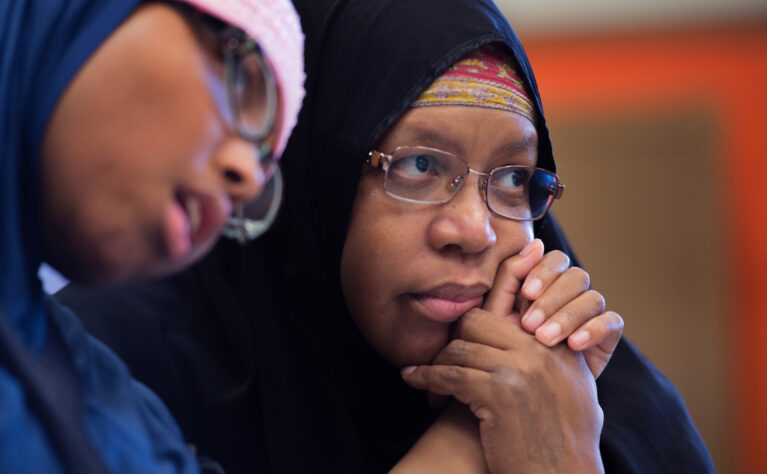
Why It’s Important
How do we create a health care system that delivers high-quality services for children and youth with special health care needs? By developing standards that are backed by research, data, and proven delivery models. Organizations and agencies use standards as benchmarks for improving their services and measuring progress. Standards also help hold systems accountable for meeting families’ needs and providing high-quality services.

Our Approach
Since the beginning of our grantmaking program, we’ve provided expertise and invested in developing national standards for setting up systems and building capacities to care for CYSHCN. Today, 45 states use these standards to guide policy and ensure quality care models.
Our continuing priorities include
- ensuring that contracts between states and managed care organizations address the needs of CYSHCN and who is responsible for meeting them,
- guiding health system strategic planning, and
- partnering to ensure that standards are implemented and monitored.
Systems and Standards Resources
See allResearch & Reports |
Issue Briefs |
CYSHCN Events
See all CYSHCN EventsJoin Café 5 of The Future of Care for Children with Medical Complexity Virtual Café Series to hear examples of the pressing need to address bias in systems of care and move from a medical to social model of care. This interdisciplinary café-style series is led by the Center for Innovation in Social Work and Health at the Boston University School of Social Work.
Join Café 6 of The Future of Care for Children with Medical Complexity Virtual Café Series to learn about a strategic yet practical perspective for advancing sustainable care coordination/integration despite its elusive challenges. This interdisciplinary café-style series is led by the Center for Innovation in Social Work and Health at the Boston University School of Social Work.
Sign up for the CYSHCN Newsletter
Stay informed on the latest news, research, resources, events, and more related to systems and policies affecting CYSHCN and their families.

Privacy Overview
| Cookie | Duration | Description |
|---|---|---|
| cookielawinfo-checkbox-analytics | 11 months | This cookie is set by GDPR Cookie Consent plugin. The cookie is used to store the user consent for the cookies in the category "Analytics". |
| cookielawinfo-checkbox-functional | 11 months | The cookie is set by GDPR cookie consent to record the user consent for the cookies in the category "Functional". |
| cookielawinfo-checkbox-necessary | 11 months | This cookie is set by GDPR Cookie Consent plugin. The cookies is used to store the user consent for the cookies in the category "Necessary". |
| cookielawinfo-checkbox-others | 11 months | This cookie is set by GDPR Cookie Consent plugin. The cookie is used to store the user consent for the cookies in the category "Other. |
| cookielawinfo-checkbox-performance | 11 months | This cookie is set by GDPR Cookie Consent plugin. The cookie is used to store the user consent for the cookies in the category "Performance". |
| viewed_cookie_policy | 11 months | The cookie is set by the GDPR Cookie Consent plugin and is used to store whether or not user has consented to the use of cookies. It does not store any personal data. |
